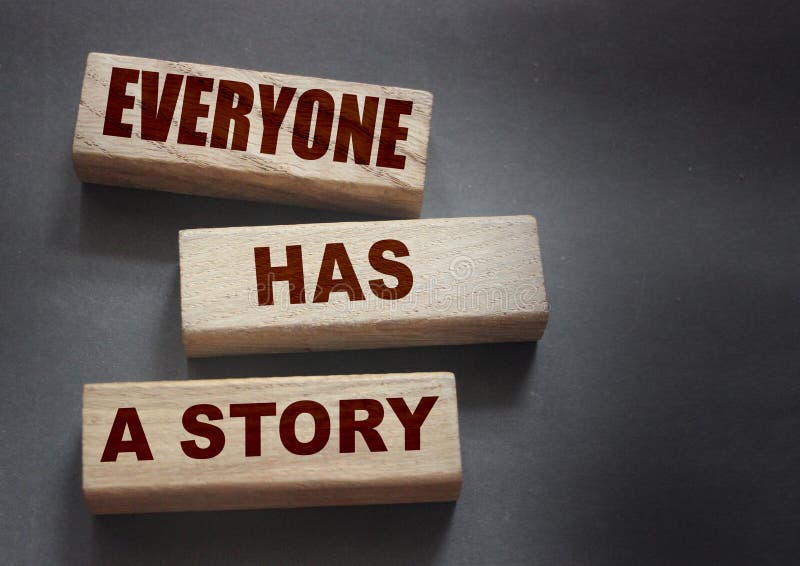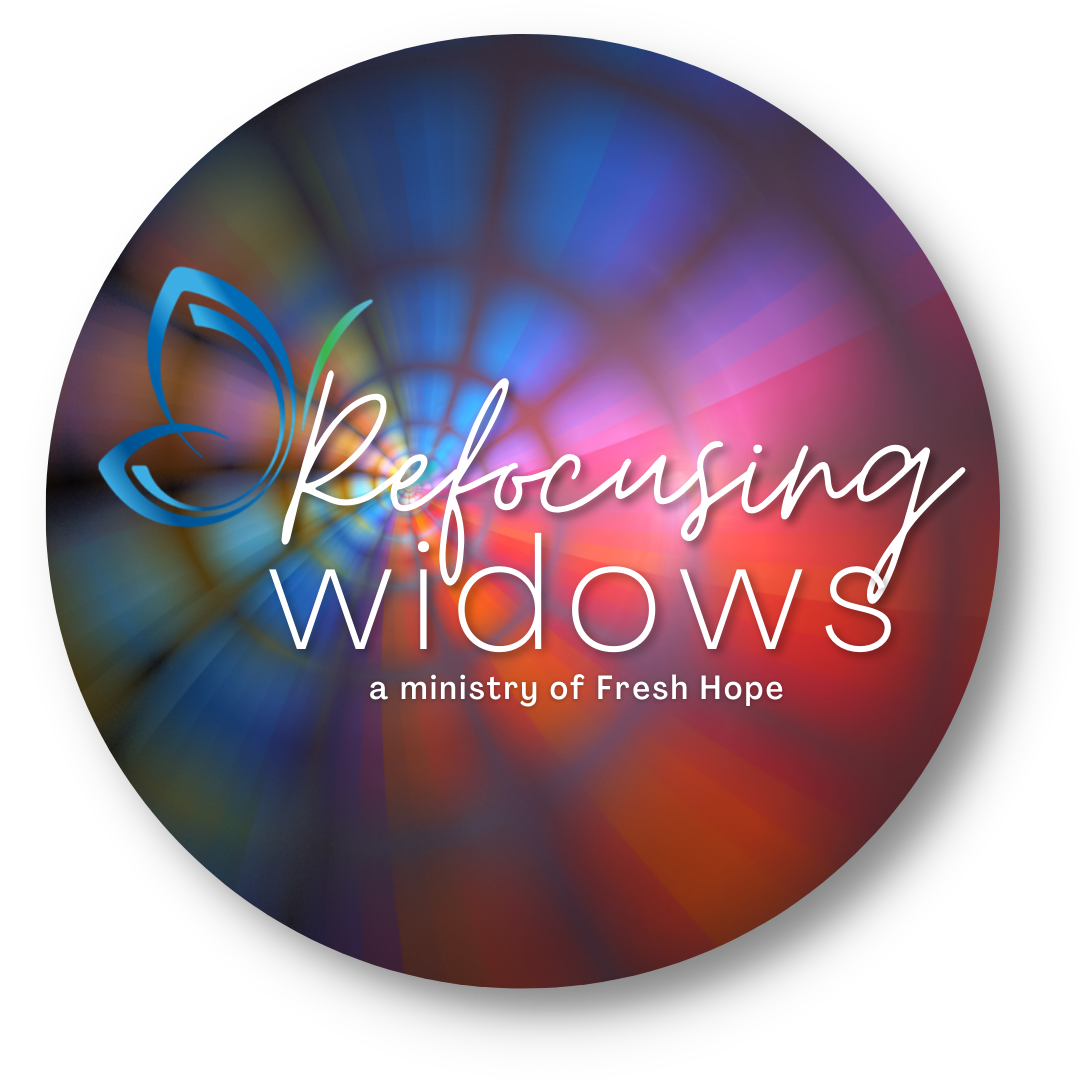
The ancient art of storytelling has been around since before writing existed. Stories impact us profoundly by helping us make sense of our world and how we fit into the bigger picture. We share stories about ourselves and our relationships with others in order to educate, to entertain, or to transfer history and values. Telling our story helps us put things in perspective.
The stories we tell ourselves and others affect the way we think about the world, the way we think about ourselves, and the way we interact with others in our daily lives. In short, storytelling shapes the reality of our world and our situation in our minds. As one Irish storyteller put it: “It’s a need for connection … I think storytelling nurtures connections with people in real life.”
You may be asking yourself, “What does storytelling have to do with grief?” The answer is that every widow has a story to tell. Even if she’s lived through grief at other times in her life, she’s never had to live this particular story before.
When it comes to widows, there are two types of storytellers: the ones who don’t want to talk about what happened, and those who tell their story over and over, but who never come to peace with it. Today I’d like to explore why it’s important to be able to tell our story truthfully and accurately.
Grief might show up in interesting or confusing ways. In the reality of death and loss, our story can feel largely meaningless. But there is truth and usefulness inside the classic story structure, especially that of the hero/heroine’s journey. Telling this story lends structure and order to what can otherwise seem formless and daunting.
The journey always begins with the hero/heroine living her life, happy or unhappy, typically more content than restless. And then…..something happens….
A stranger arrives, or an army invades, and she loses something precious, or death takes someone she loves. There’s a journey she must reluctantly undertake. On the journey, she will overcome many challenges, and in the end will attain a goal or solve a problem.
Perhaps you have sometimes felt like Sam, as expressed in the following excerpt from “Lord of the Rings: The Two Towers” written by Tolkien.
FRODO: I can’t do this, Sam
SAM: I know. It’s all wrong. By rights we shouldn’t even be here. But we are. It’s like in the great stories, Mr. Frodo. The ones that really mattered. Full of darkness and danger, they were. And sometimes you didn’t want to know the end. Because how could the end be happy? How could the world go back to the way it was when so much bad had happened? But in the end, it’s only a passing thing, this shadow. Even darkness must pass. A new day will come. And when the sun shines it will shine out the clearer. Those were the stories that stayed with you. That meant something, even if you were too small to understand why. But I think, Mr. Frodo, I do understand. I know now. Folk in those stories had lots of chances of turning back, only they didn’t. They kept going. Because they were holding onto something.
The life of a widow can be strongly impacted by hearing the stories of other widows. Only another widow truly knows what it’s like to lose a spouse. By telling our story to others who understand, we begin to build authentic relationships. Our perspective begins to shift, and our world begins to make more sense. We encourage others and they encourage us.
Our story of becoming a widow is initially made up of facts. Facts are neutral. They do not include feelings. The actual facts are what everyone agrees happened. As time goes by, we begin to add things to our story in an attempt to explain the facts. However, anything more is merely what we tell ourselves about the facts, and what we believe about the story. It’s not what happened to us that shapes who we are; rather, it’s what we choose to believe about the story.
The actual facts of your story compose the part that you were not able to control. What you can control, though, is what you tell yourself about the facts of your reality. Those things you think about your story create the feelings that you have. How you now interact with those around you is based upon how you are feeling about your story.
Exploring the entire story enables us to identify the facts and then discuss everything else that is left. Much depends on how the widow interprets her life through the perspective of her loss. It’s not the actual loss that will determine her future path, but rather what she makes her loss mean by what she tells herself about it. The grief definitely continues, but much of a widow’s present pain is caused by the emotions surrounding what she tells herself about being widowed.
Jesus was one of the greatest storytellers to ever live and walk among us. In Matthew 13, we see Him spending an entire afternoon telling parables to the multitudes, helping them to put their understanding of the world and the Kingdom of God into perspective. In fact, Matthew 13:34-35 says, “All these things Jesus spoke to the multitudes in parables, and He did not speak to them without a parable, so that what was spoken through the prophet might be fulfilled, saying, ‘I will open My mouth in parables; I will utter things hidden since the foundation of the world.’”
Perhaps you’ve been struggling with your situation, finding yourself as a widow and wrestling with all the “Why?” questions. If that’s the case, you might try this exercise. Begin by writing down your story – the one you tell about the death of your spouse. Include as much detail as you are comfortable with. Then, as you read it back to yourself, begin to notice what the facts are. Ask yourself how each sentence makes you feel when you think about it. Is it uncomfortable? Is it painful? Do you begin to see how the thoughts you choose create the painful emotions you may be feeling?
You are the hero/heroine of your own story. As you write out your story of becoming a widow, include some of your thoughts on things that have been difficult, or especially challenging. You might also include things the Lord has taught you along the way, or blessings that have come in spite of (or because of) your loss.
Your story won’t be finished in a week but continuing to work on it as you journey will give you many insights. It will crystallize many things in your thinking and help you to sort out your emotional responses to the present season in which you find yourself.
To help you get started, you can begin with, “I need to tell you what happened….”
Remember to subscribe to this blog and share it with your widow friends! As always, your comments are welcome, and I’d love to have you email me your story at sheryl@freshhope.us
